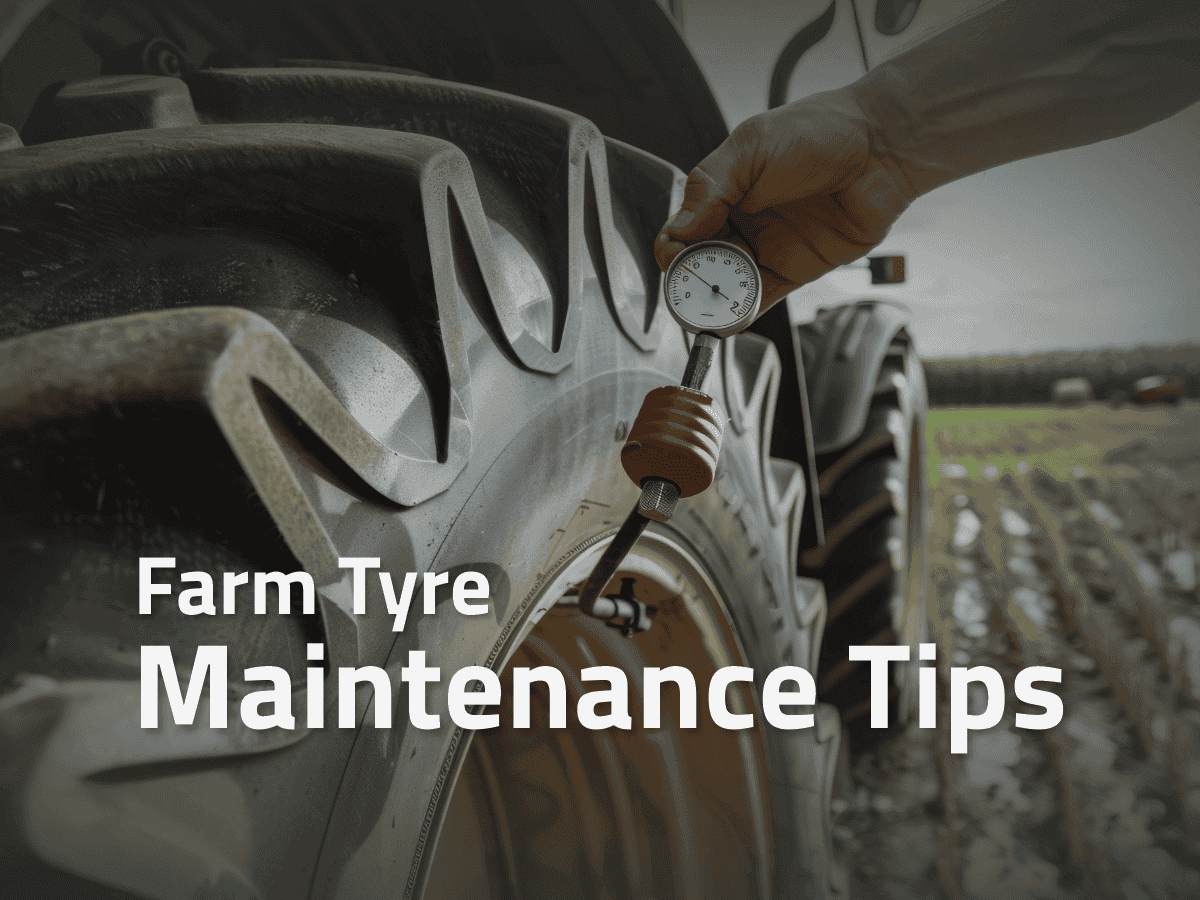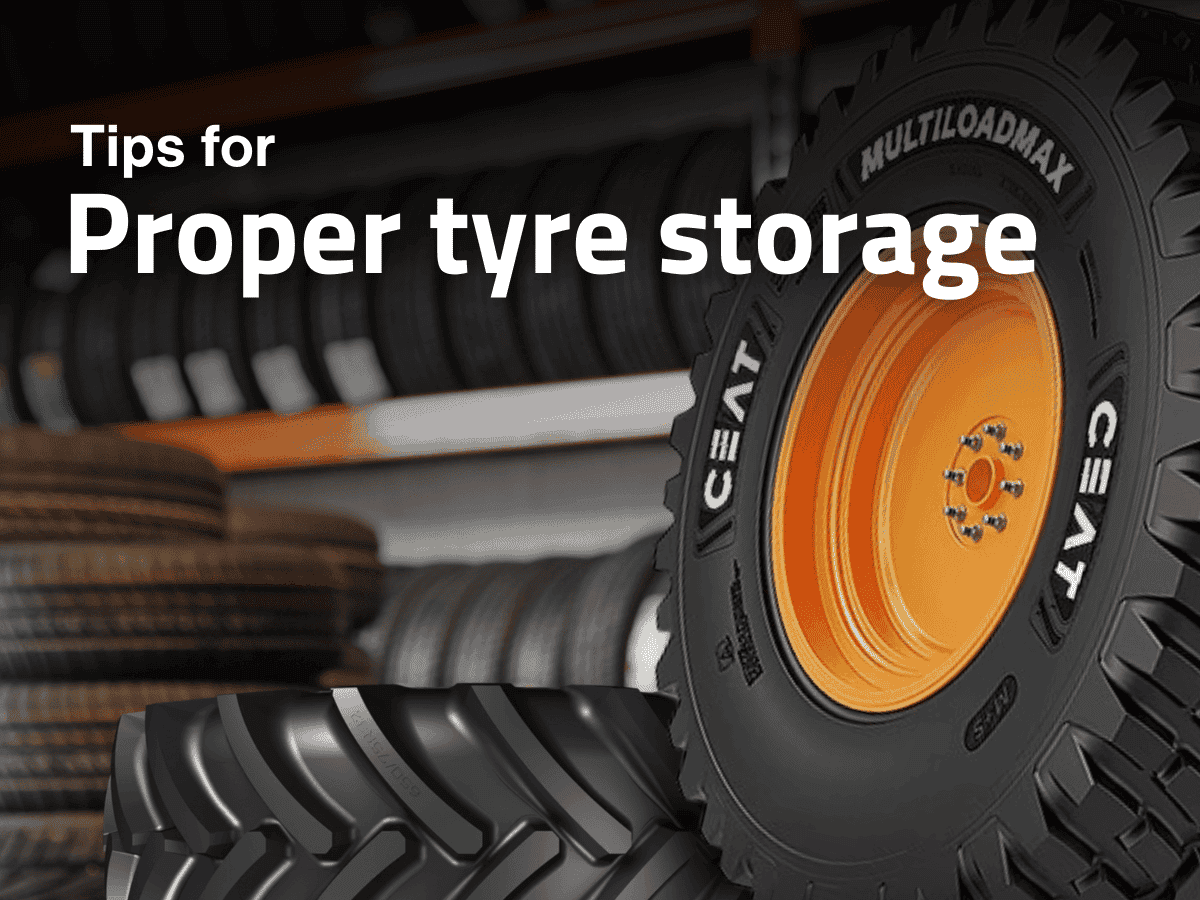ceat-speciality:blogs-tags/all,ceat-speciality:blogs-tags/tyre-care
How do you keep your compact loader in top shape?
Sun, 1 Sep 2024 | PRODUCTS
A well-maintained compact loader is a valuable asset that can significantly enhance efficiency and productivity on your farm or construction site. Regular maintenance ensures optimal performance, minimises downtime, and extends the lifespan of your equipment.
Following the tips outlined in this guide, you can take proactive steps to keep your compact loader in top shape and avoid costly repairs or replacements.
Regular Maintenance Checks
- Daily Inspections
Conducting daily inspections is a fundamental aspect of compact loader maintenance. By carefully examining your loader before each use, you can promptly identify and address potential issues, preventing more significant problems and ensuring safe and efficient operation.
- Weekly Checks
In addition to daily inspections, weekly checks are essential for maintaining your compact loader's optimal performance. Here's a breakdown of critical areas to focus on:
- Fluid Levels:
- Engine Oil: Check the engine oil level using the dipstick. Ensure it's between the "Full" and "Add" marks.
- Coolant: Verify the coolant level in the radiator reservoir. It should be between the "Full" and "Low" marks.
- Hydraulic Fluid: Check the hydraulic fluid level in the reservoir. The recommended level is in your owner's manual.
- Transmission Fluid: Inspect the transmission fluid level and condition. Consult your owner's manual for specific guidelines.
- Tyre Pressure: Ensure your tyres are inflated to the recommended pressure. Incorrect tyre pressure can affect performance, fuel efficiency, and tyre life.
- Belt Tension: Check the tension of belts, such as the fan and alternator belts. They may slip or wear prematurely if they are too loose or tight.
By conducting weekly maintenance checks, you can identify and address potential issues before they escalate into more severe problems, ensuring your compact loader's long-term health and performance.
- Monthly Checks
Monthly maintenance checks ensure your compact loader's long-term health and performance. By addressing potential issues early on, you can prevent more significant problems and minimise downtime.
Proper Operation
- Avoid Overloading
Overloading your compact loader can have serious consequences, including:
- Component Strain: Exceeding the loader's rated capacity can put excessive stress on various components, such as the engine, transmission, hydraulic system, and axles. This can lead to premature wear and tear, reduced lifespan, and increased maintenance costs.
- Reduced Performance: Overloading can decrease your loader's efficiency and productivity. It may cause the machine to operate slower, consume more fuel, and experience reduced movability.
- Safety Risks: Overloaded loaders can be unstable and difficult to control, increasing the risk of accidents and injuries.
To avoid overloading your compact loader:
- Consult the Owner's Manual: Refer to your loader's manual for specific load capacity information.
- Avoid Overfilling Buckets: Do not overfill the bucket to the point where it spills.
- Be Mindful of Terrain: Adjust your loads based on the terrain you're operating on.
- Use Appropriate Attachments: Select attachments suitable for your tasks and the weight of the materials you're handling.
You can ensure long-term health, safety, and optimal performance by avoiding overloading your compact loader.
Tyre Care
- Regular Inspections: Check tyre pressure and tread depth for any signs of damage.
- Proper Inflation: Ensure tyres are inflated to the recommended pressure.
- Rotate Tyres: Rotate tyres periodically to ensure even wear.
- Choose Quality Tyres: Invest in high-quality compact wheel loader tyres from reputable brands like CEAT Specialty for optimal performance and durability. Our Multiloadmax tyres provide better stability on the road along with driving comfort.
Fluid Maintenance
- Regular Oil Changes: Follow the manufacturer's recommended oil change intervals.
- Check Fluid Levels: Regularly monitor coolant, hydraulic, and transmission fluid levels.
- Use Quality Fluids: Use only high-quality fluids recommended by the manufacturer.
Component Care
- Battery Maintenance: Keep the battery clean and adequately charged.
- Hydraulic System Maintenance: Regularly check hydraulic fluid levels and condition.
- Filter Replacements: Replace filters according to the manufacturer's recommendations.
Storage
- Proper Storage: When storing your loader for extended periods, follow the manufacturer's guidelines for proper storage.
By following these tips, you can significantly extend the lifespan of your compact loader and ensure it operates at peak performance.
































































































































